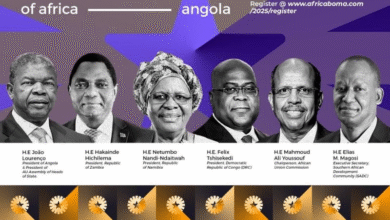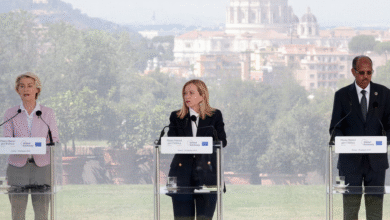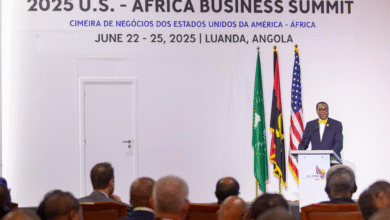Interview with Hicham Rahil, member of the National Council of the People’s Movement, and head of diplomatic affairs at the Maghreb Center for Strategic and Security Studies
That was the big surprise of the last African Union Summit, the return of Morocco to the Union – which was not a surprise in fact … Morocco has been preparing this actively for several years…
Indeed, this return of Morocco to the African Union is the result of long years of work. It was at the heart of the Kingdom’s priorities. And, at the last Union summit, Morocco obtained enough votes for membership thanks to its bilateral relations with a large number of African countries.
Economic impact: it will confirm the Kingdom’s growing role as a major investor in the continent. Eco-diplomacy has been at the heart of Moroccan strategy in Africa during the last decade. South-South co-operation is highlighted and a few contracts are concluded…
Undoubtedly, it is also because of the Moroccan economic booming for the last ten years that it was supported by other African countries. But it is not playing a role: South-South cooperation is a reality. In several sectors, Morocco has contributed to the development of the countries it supports. It is not only a question of « concluding contracts » – as you say – but of committing itself on the long term basis by using Moroccan know-how.
With Algeria, its neighbour, with whom relations remain tense, and which supports the Polisario, things are not likely to improve…
Necessarily, the stronger the Kingdom, the more it worries. First of all its opponents: of course, I am thinking of Algeria, which is not surprising, but also South Africa, which are losing ground in Africa just because their diplomacy is based on lies. When Algeria accuses Morocco of terrorism, it forgets that our country is a strong partner on which the European countries have always relied in terms of struggling. And the last tragic attacks in Paris were a perfect demonstration: the sponsors of the attack had been arrested with the help of the Moroccan secret services.
On the other hand, South Africa does not play its role as a partner. Although the Johannesburg universities are known for their high level of competence, they are closed to African students, unlike Moroccan universities which welcome thousands of students from the continent every year, with a warm and sincere welcome … And Morocco benefits from this user-friendly actions: the visits of the King His Majesty Mohamed VI to African countries are specially welcomed by both political leaders and people. This perfectly vindicates the Kingdom’s good relations with its brotherly countries we have managed to establish winning-winning relationships with.
Now that the Kingdom has returned to the African Union, what is the next step for its diplomacy? The King recently visited English-speaking Africa, is it the next step?
Yes, to pursue and establish new bilateral relations while reinforcing the existing ones. For if this return to the African Union denotes successful Moroccan diplomacy, it will be a battle won, but the war is still there. There is a « but » in African bilateral relations and even beyond. To date, they are based only on the Royal Institution and the Ministry of Foreign Affairs. However, I personally feel that our parallel diplomacy is not yet at a desirable level. For example, it lacks the appropriate framework to support Moroccan SMEs in investing in Africa. Today, only the major Moroccan companies, who accompany the King on his visits, penetrate the African continent. But as we all know, SMEs create wealth locally and generate jobs. The Moroccan economic weight over the long term will depend on its ability to integrate the SME network. This is the role of Moroccan employers’ association.
Similarly, the Moroccan civil society must work with associations in Africa, target human rights, humanitarian associations and political leaders to be involved in actions in the continent. Unfortunately, this is not the case. The government and the political parties are totally absent. They only welcome the King’s initiatives without supporting them. It is important to remember past experiences: while Morocco militated official diplomacy – the Monarchy – from 1996 to 2008 for Morocco to obtain the advanced status in Europe to get it finally. Today, it is questioned because the government and the representatives of the parties are not involved as they had to take over. Especially since, unlike them, our opponents are really involved and planning to weaken Morocco. It should not be forgotten that some European countries, especially the Scandinavian countries, did not support Morocco in the Western Saharan issue. The same position can be feared in Africa. We must mobilize our efforts – political parties, but also civil society, and the media, all the components of a nation – to support the royal diplomacy on the long term basis. Otherwise, we will lose the position of strength we have gained.







